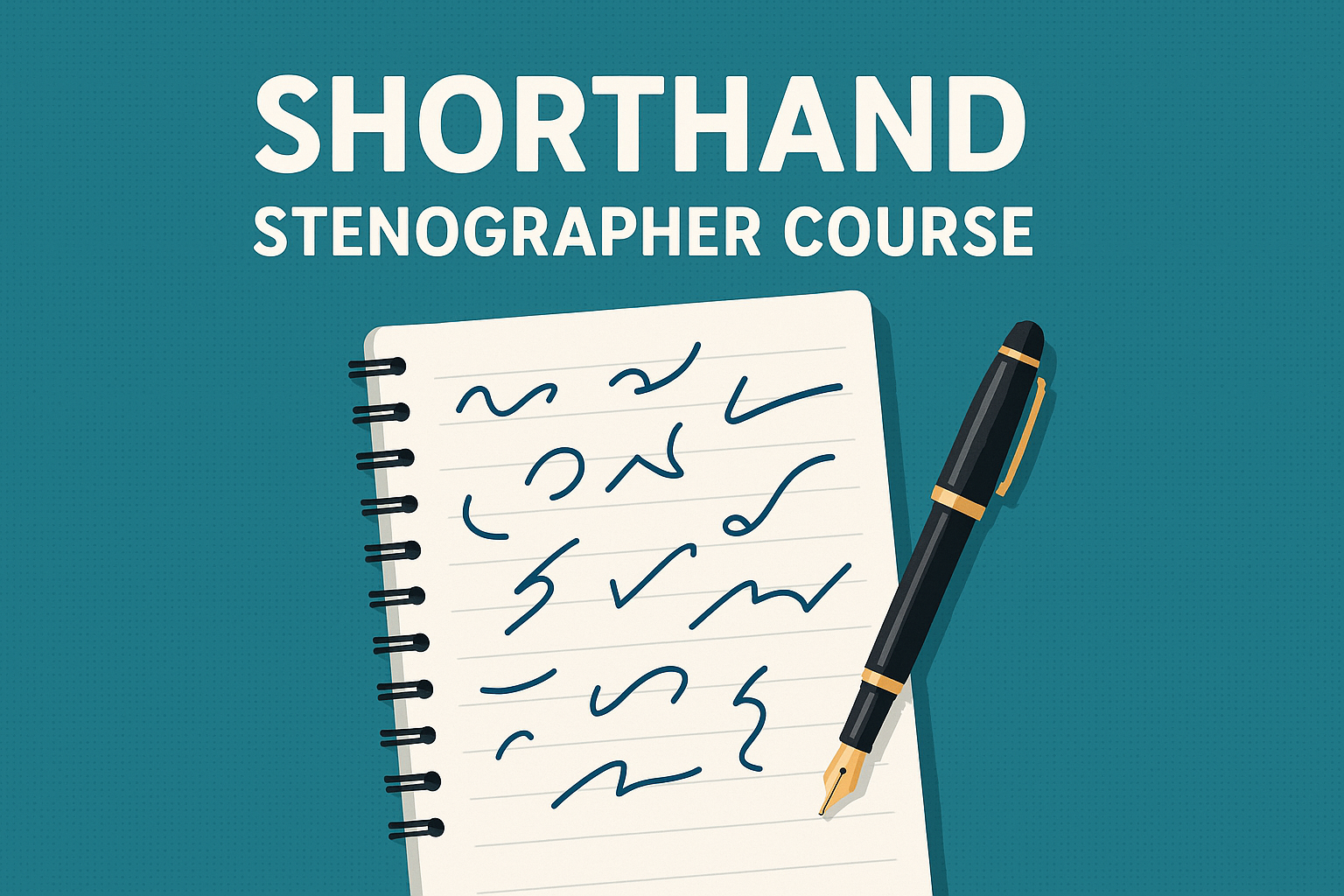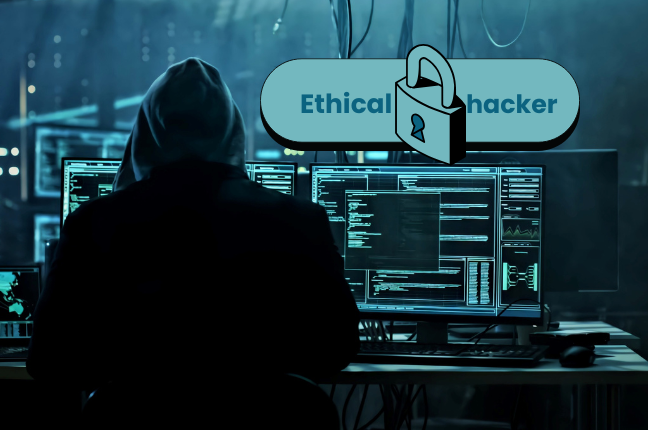Home / Blogs Detail

Shorthand Stenography Skills, Career, Pros and Cons, FAQs.
The Art and Profession of a Shorthand Stenographer
Shorthand Stenography is such a fascinating and important talent in different kinds of professions. A remarkable skill of writing, invoked in transcription work for converting spoken words into writing at speed and accuracy, is shorthand. A shorthand stenographer has his/her part to play in the whole concept of efficiency in carrying out the process of record writing in order to refer back to oral communication.
In the article I plan to cover the profession, skills and job openings for the shorthand stenographers and why the shorthand writing is still useful in the current century.
What is a Shorthand Stenographer?
An extraordinary shorthand stenographer is one who is trained to write at a really, really fast speed. It can be shorthand symbols or machines used, but they will definitely listen. They tend to write down everything word for word. Such professionals are easily able to secure themselves a job in legal, corporate or any other administrative environment that may question the correct transcription of conversations, speeches or meetings.
The Importance of Shorthand in Modern Times
- Shorthand Stenography / Why It Matters: At the present, shorthand may sound primitive but in many respects it still reigns supreme.
- Speed: Some people may not even exist doing stenography typing or even the conventional long hand writing Speed: Stenographers may write at a far much faster way than typing those who write with hand.
- Accuracy: They ensure each one word is written down without fail of vital elements.
- Confidential: In sensitive environments, shorthand secures and privately transcribes.
- Versatility: Courts, conferences, interviews, and even in journalism are some of the events in which it can be found useful.
Skills Required to Become a Shorthand Stenographer
Being a shorthand stenographer requires some skills and a good deal of hard work. Given below are a few of the essential skills
- Proficiency in Shorthand-Learns shorthand system which is best known, such as Gregg, Pitman, or Teeline.
- Excellent Listening Skills: Ability to comprehend the word immediately.
- Typing speed- Develop fast and accurate typing
- Attention to Detail: Accuracy is maintained under duress
- Strong Grammar Knowledge: Accurate transcription.
- Time Management: Meet a deadline easily.
Shorthand Stenography / Systems
Different parts of the world and different professions have their own shorthand systems.
Popular among them are:
| Shorthand System | Developed By | Features | Best Suited For |
| Gregg | John Robert Gregg | Easy curves and loops | Administrative functions, general |
| Pitman | Isaac Pitman | Phonetic-based symbols | Report in error and justice |
| Teeline | James Hill | Use and use letter parts for brevity | Journalism, business notes |
| Stenotype | N/A (the machine-based) | A steno keyboard has been fast and very effective. | Law courts, closed captioned |
Career Opportunities for Shorthand Stenographers
The art of shorthand stenography opens up untold trails for various occupations. The
following are just some of the familiar job titles associated with that profession:
- Court Reporter: Transcribe legal proceedings.
- Transcriptionist: Record interviews, meetings, or conferences.
- Captioner: Provide real-time subtitles for live events.
- Administrative Assistant: Document important meetings..
- Journalist: Note down interviews and press briefings
Shorthand Stenography / Industry Demand
As a matter of fact, such high-profile industries as those we know: law, media, and even healthcare tend to have their fair share of professional stenographers. And for certified practitioners, the remuneration is usually very attractive.
Benefits of Learning Shorthand Stenography
Learning shorthand would have the personal as well as the official advantages.
- Facilitates productivity and efficiency enhancement.
- Boosts level and comprehension in listening..
- Creates room for some niche career opportunities.
- Enables professionals to work in dynamic environments.
- Ensures timeless communication and documentation skills.
It is rewarding to learn shorthand stenography, but it has its downside.
- Time-Consuming Learning: This skill requires constant use to perfect.
- Physical Stress: Continuous hours may fatigue the hands
- Stressful Surroundings: Work often requires attention in a high-stress environment.
- Rehearse occasionally to develop bodily coordination.
- Rest for some time period to avoid stagnancy. .
- Acquire ergonomic tools for comfort.
What is the difference between shorthand and stenography?
In essence, shorthand is a technique of writing using symbols that are able to represent sounds. On the other hand, stenography is shorthand and the employment of a stenotype machine.
For instance, steno machine court reporters would use a steno machine to report court proceedings. This machine types more than one letter to type a syllable, thus increasing its efficiency.
Note: Call the writer when an online article and a piece of content is needed .
On the other hand, shorthand does not use anything but manually activated symbols. It is good for recording thoughts fairly quickly, although it does not perform well in a crunch.
How long does it take to learn shorthand?
It takes about 6 months to 1 year to learn shorthand, but mastery of shorthand could take a longer period of time.The time necessary to learn depends on what system you choose. One to two hours of practice every day will hasten the progress. Attaining professional speed (100-200 words per minute) might take another year.
What tools do shorthand stenographers use?
Stenographers utilize shorthand notebooks, writing instruments, stenotype machines, and software with transcription functionality as well.
Material and tools required include good notebooks and a shorthand-friendly pen. Stenographers also use advanced tools like the steno machine, which works really well for high-speed transcription. Some professionals also use software such as CAT (Computer-Aided Transcription) for shorthand transcription into readable text. All these tools thus transform their workflows.
Is shorthand still relevant in the digital era?
Undoubtedly, shorthand is as relevant today as it was even before, and it will continue to be relevant in the future-it is all about accuracy and speed to meet one's real-time documentation needs.
Real-time transcription is very important in the media and legal sectors. Shorthand stenographers can take detailed dictations faster than voice recognition software. The skill also ensures secrecy, something no technology can guarantee. The value of shorthand, however, still exists in human-to-human communication despite all technological advancements.
Shorthand Stenography / Conclusion
Stenography, shorthand, yet continues to remain of huge significance in industries. This really is a skill required by those who want to become successful in legal, administrative and media professions. Regardless of technological progress, shorthand speed, accuracy, and reliability are uncontested.
In all honesty, aspiring stenographers should be having a steady grip with practice. This trade can open ways for other high-profile jobs in the whole industry. If you aim to become a court reporter or a news writer, shorthand is basically the gateway to everything. You can really boost your productivity and find yourself with a competitive edge by learning such a timeless skill.
Popular Blogs

Dec
Web & Technologies
The Ultimate Guide to Web Development: Learn Skills, Tools, and Trends
More Details





